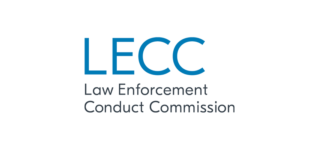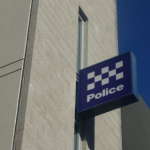NSW Police Watchdog: No Teeth and Underfunded

The NSW Law Enforcement Conduct Commission (or LECC) is already considered to be a largely ineffective police watchdog, without sufficient funds or human resources to investigate complaints.
The body has no power to discipline officers, and can only recommend that police take disciplinary action against officers – resulting in a situation where police are left to police themselves.
Now, the Commission is facing $6 million in funding cuts, which will no doubt further weaken its effectiveness and make it easier for police to avoid misconduct investigations.
The LECC
The LECC was set up in 2018, to take over complaints against the police that were previously referred to the NSW Ombudsman, Police Integrity Commission and the Inspector of the NSW Crime Commission (NSWCC).
In basic terms, the Commission’s role is meant to be to ‘police the police’.
But shortfalls in funding have always been an issue.
Since its inception, the LECC has struggled to meet its mandate because of budget constraints. Now, further cuts will mean that the watchdog continues to struggle.
The body assessed 2547 complaints against police officers last year alone, but was only able to properly investigate 2 per cent of them.
According to its annual report, in 2018-19, the LECC received 1000 more complaints against police than its predecessor, the Police Integrity Commission, received in 2015-16 – an increase of more than 70 percent in just three years.
As of June this year, the commission was also leading 103 ongoing investigations – including allegations of money laundering by a senior NSW Police officer with financial associations to a criminal entity, as well as multiple ‘invasive’ late-night bail checks and strip searches conducted in breach of the law.
Yet, when it has been able to fully complete investigations, the LECC has uncovered serious misconduct by police officers. For example, the investigation of alleged sexual assault during a strip search at a Sydney police station which did not come across evidence of sexual assault, but did uncover numerous other breaches of policy and protocol.
Last year, the LECC started six investigations into strip searches, to determine if they were conducted on reasonable grounds, whether force was used appropriately and whether privacy was provided.
The LECC also investigated the police officers who bashed a naked teenager in Byron Bay in 2018. As an outcome of that inquiry one of the officers has since been charged with assault.
While the LECC only handles complaints considered serious misconduct, it is an important oversight body because it is impartial. The LECC says it received about 100 tip offs last year, many from police or former police, eager to see those officers who do the wrong thing investigated and disciplined.
Without such oversight, police are left to police themselves, which doesn’t serve the force itself, nor does it serve the wider community.
Without adequate funding, not only is the LECC hamstrung, unable to do its job effectively, but this sends a very clear message to the police officers of New South Wales that they can breach laws and protocols and bully and intimidate because it is likely that their behaviour will not ever be checked.
It also sends a strong message to the people of New South Wales that making police accountable is not a state priority, despite the fact that increasingly police are making headlines for criminal conduct.
Despite all of the criticism that has been levelled at oversight bodies such as the LECC, particularly because it is staffed by ‘ex-cops’ who are then charged with investigate allegations of impropriety, including corruption, sexual misconduct and excessive force by police officers, this is the only system we currently have and it needs every chance to prove that it can work.
In recent years, the issue of misconduct by police officers in Victoria became so prolific that people who encountered misconduct were encouraged to take photos and videos of their interactions with officers and upload them to social media, to expose rogue cops, and to put the pressure on state governments to ensure that adequate resources go into ensuring those who take a vow to serve and protect us uphold those vows to the highest possible standard.








